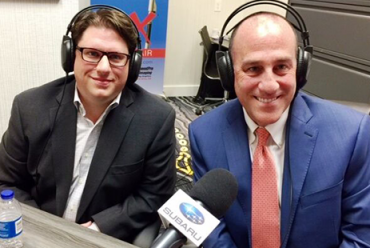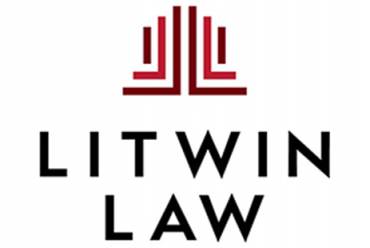Beware of (Taxing) Dog: Breeders’ Sales Tax Obligations
Although Georgians have been penned in their homes over the past year, many have broken out of the quarantine barrier to adopt and buy pets and at record levels. Breeders seek top dollar for their perfectly bred pooches. They should be aware of their obligation to collect and remit sales taxes.
Under Georgia sales tax laws, persons who make retail sales (sales to the end user) of tangible personal property must be registered for and collect sales tax. Tangible personal property includes animals, and the seller must collect sales tax at the point of delivery.
The delivery location determines the tax rate. Thus, if the breeder is located in Dawson County, Georgia, and the purchaser takes possession of the dog in Dawson County, then the Dawson County rate applies. If the Dawson County breeder delivers the animal to the purchaser in Cobb County, then the breeder should collect tax using the Cobb County tax rate.
Aren’t Sales of Dogs Exempt from Sales Tax? No. Sales of dogs for use as pets are not exempt from tax. The Georgia tax code provides for an exemption from sales tax for sales of agricultural products. For example, purchases of cattle, hogs, sheep, horses, poultry or bees for breeding purposes are agricultural inputs that qualify for the exemption from sales tax. But purchases of dogs or any other animal for use as pets are not exempt from sales tax. Indeed, Georgia Department of Revenue has a regulation that covers the sale of pets. Under the regulation, sales of horses, dogs, animals, goldfish and other pets are subject to sales tax, unless purchased for resale or otherwise exempt.
What about Separate Training Services? Many breeders also provide obedience training and potty training. In Georgia, only enumerated services are taxable. Training animals is not an enumerated service that is taxable. In fact, Georgia law exempts sales of personal services (such as haircuts or shoe repair services). Arguably, therefore, training services should qualify as nontaxable personal services. But the services must be separately stated on the breeder’s invoice. An invoice that shows a single price for the sale of the dog and for the training, will be considered taxable, even though the single charge included nontaxable services. Finally, purchases of supplies used for training are taxable, and the breeder must pay the applicable sales and use tax on such purchases.
What if I Sell to a Nonresident of Georgia? Some people travel from other states to pick up their pet from the Georgia breeder. Although the purchaser lives in another state, if the purchaser takes possession of the pooch in Georgia, then the breeder should collect Georgia sales tax on the sale. This holds even if the invoice shows the purchaser’s non-Georgia address. In such a case, unless the breeder has proof that the breeder shipped the dog to the non-Georgia purchaser, then the Department will likely assume that the purchaser travelled to Georgia to pick up the dog. Therefore, if a breeder ships the dog to a purchaser in another state, the breeder should keep adequate records to show that the purchaser did not take possession of the dog in Georgia and that the purchaser did not send someone to pick up the dog. Shipment by common carrier is the best option to establish that the purchaser did not take possession in Georgia.
What Should the Unregistered Breeder Do? If the breeder is not registered with the Department of Revenue, then the breeder can avail itself of the Department’s voluntary disclosure program. Under the program, the Department of Revenue will require that the breeder (1) register for sales and use tax and (2) pay uncollected sales and use taxes for the prior 36 months, plus applicable interest. But the Department will relieve the breeder from any uncollected taxes for periods prior to the 36-month lookback period and will waive all civil and criminal penalties. Not all taxpayers are eligible for the voluntary disclosure program. Generally, the taxpayer cannot have had any prior contact from the Department, and the taxpayer must be current with all other taxes.
Conclusion. Breeders and other sellers of pets should be registered for and collect Georgia sales tax on sales of pets. Otherwise, the exposure is an unlimited lookback period to pay back taxes that were not collected, interest (the rate for periods prior to July 1, 2016 is 12% per year) and penalties of 25% of the tax.
Litwin Law represents individuals and businesses in state and local tax matters. Litwin Law deals with a variety of issues that arise during audit and during protest and appeal to the state taxing agencies across the country.
For over 30 years, as a recognized Super Lawyer since 2008, as a recognized U.S. News & World Report “Best Lawyer” since 2010, and as a U.S. News & World Report Best Lawyers 2021 Lawyer of the Year, for “Litigation and Controversy – Tax,” Richard Litwin has devoted his practice to multistate tax, state and local tax, and tax controversies.
Note: “Pass the SALT” is a blog of The Litwin Law Firm, P.C., d/b/a Litwin Law, and is dedicated to sharing views and ideas on state and local taxation. This document is an overview and summary of state and local tax obligations. This document is not intended to be, nor should be interpreted as, legal advice. For legal advice, the reader should contact an attorney.
Credits: 512px-Playing_With_Dogs.jpg: Ugandan Rose, CC BY-SA 4.0 <https://creativecommons.org/licenses/by-sa/4.0>, via Wikimedia Commons








